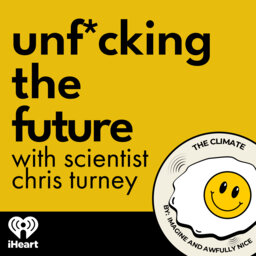From Fossil Fuels to Climate Action with Tom Steyer
Before Tom Steyer ran for President on a campaign advocating for climate change, Tom Steyer was making money by investing in fossil fuels. But that changed when he realized the natural environment around him was decaying—and the government wasn’t doing anything to stop it. On this episode, Chris and Tom explore Tom’s concept of "movement capitalism," and how businesses can drive positive climate impact.
Show notes from Chris:
According to “Banking on the Climate Chaos”, fossil fuel financing from the world’s 60 largest banks has reached USD $5.5 trillion in the seven years since the Paris Agreement. If you’d like to find out more about who is financing fossil fuel projects around the world check out their website and annual report at https://www.bankingonclimatechaos.org
If you’d like to learn more about how bringing together economic and social values can help build a better world, former Governor of the Banks of Canada and England, Mark Carney, has written a thought-provoking book called “Value(s)”. You can read a review here.
In 1 playlist(s)
Unf*cking the Future
Unfucking the Future takes us on an environmental journey with our knowledgeable guide, scientist Ch…Social links
Follow podcast
Recent clips

Blue Carbon with Sanjayan
32:43

Greening Cities with Kotchakorn Voraakhom
27:52

Wildfires with Glynis Humphrey
29:35
 Unf*cking the Future
Unf*cking the Future